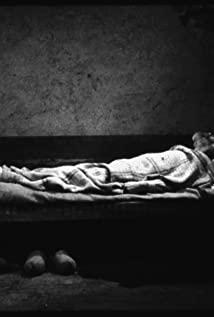Istek is dead and Janosh has not survived the dark. I don't like the long and boring "Satanic Tango", even if I give it a passing score, it is only because of its deep themes, stacked on top of each other Delicate structure and two memorable passages: the little girl Istek committed suicide after abusing a cat, and the liar Irimias's witty speech loop.
But that doesn't mean it's an endorsement of its artistic completion, on the contrary, artistically, I think it's a failed, out-of-control, paranoid work. Most of the long shots do not have enough substance for the audience to immerse themselves in it. A simple story is diluted by more than seven hours, so that the amount of information allocated to each long shot is extremely meager, and the effect is naturally boring. rather than full of tension. This is a manifestation of the director overestimating the influence of his theme and ignoring the laws of art. Bella Tarr forgot: Political correctness doesn't mean you can do whatever you want in art. He drank so much water for the audience that when the food was served, the audience could no longer eat.
Compared with the extravagant "Satan Tango", "The Whale Circus" showed great control. In 138 minutes, a riot was simply set off and suppressed, and a gentle and fragile young man lived forever. Into a mental hospital. It is undoubtedly Bella Tarr's representative work. He himself is extremely insurmountable. At the same time, it also sets a benchmark for the aesthetics of the long mirror, and provides excellent material for the discussion of totalitarianism and gangsters. Obviously, before the circus came to the town, this place was already Yuntun Yuji. Under a powerful rule that only knew how to solve problems by repression, the hostility that people had accumulated for many years had turned themselves into a powder keg— - The female workers in the printing house made a pessimistic and accurate judgment: the world has gone completely crazy - they are just waiting for a fuse. The cult leader, the nihilist "Prince" is such a character, he declares: what they built and will build, what they have done and will do, are delusions and lies, what is being built is incomplete, what is in ruins everything will be complete. This is undoubtedly the right choice for the confused mob. The fire was burning in the square. People's desire for destruction was usually feared because of their loneliness. Now, they finally had a chance to vent. They smashed the hospital with sticks and beat the seriously ill patients who had not escaped. Enjoy the destructive pleasure of the killing game. Finally, a naked old man shocked everyone with his pathetic image of life and death, and the riot came to an end.
Here, it's most notable how "Prince" came to be. We can see: First of all, he gave himself a noble and concise code name "Prince", which opened the distance between him and the public at once, although no one knew which country he was the prince, but This symbol has already satisfied people's psychological expectations for things to be revered, and it seems to have an extraordinary and unquestionable origin; secondly, his congenitally deformed image is completely in line with people's imagination of people with extraordinary talents, and the sense of mystery is always easy to deceive people; thirdly Third, he speaks to people through translation. This style is an important part of creating a strange atmosphere. Fourth, he appeared with the whale circus and developed speeches after the whale exhibition. The huge and abrupt whale shocked people. , allowing him to subtly fit him; fifth, he knows people's spiritual emptiness, depression and hopelessness, and dissatisfaction with reality and the government. He can't wait for people's passions to retreat before giving orders, and he can't act in the day without a sense of invisibility. He knows when it is most appropriate to issue "Judgment Day has come, rage and blood wash everything"; Sixth, he will choose the target of violence (in the This town is a hospital), he asked his followers to bully the soft, instead of confronting the hard, and directly talk to the state violence agency... In short, like all cult leaders, he is extremely smart, ruthless, good at packaging himself, and knows how to grasp And control the public mind.
And the oppressors, headed by Aunt Donner and the police chief, were a different kind of terror. As soon as Aunt Donner appeared on the scene, she gave Janos an order in a dictatorial and high-pressure manner, forcing him to help, and asking him to take her threat to her ex-husband Estelle: if you don't do it, move in with him immediately . The police chief, while drunk, scolded: Dirty pig! mob! With one arm around the coquettish Aunt Donner, the other holds a pistol. As for his thinking, it can be seen from the fruits of his education - two lawless young sons. Their way of dealing with the riots is very simple. The so-called "restoring order and cleaning up the filth" is just to drive past the armored vehicles and start the massacre.
This is the basic duality of human society: totalitarian rulers, cults and mob. They nurture each other, oppose each other, and are constantly replaced in the repetition of riots and purges. "Satan Tango" discusses the irreversible demise of collectivism, deception and being deceived, the numbness, selfishness, and indifference of human nature, mostly scattered perspectives, while "The Whale Circus" focuses on two violent on the game. The former is the accumulation of contradictions and their consumption in mediocre years (like spiders weaving webs in dusty corners), the latter is the explosion of contradictions (suffocating, without uttering a single scream) and its consequences. Both tragedies, both of which are inescapable nightmares. Bella Tarr's vision of these has been presented through an iconic lens: the fate of mankind, as static, ominous, colorless, and too rigid to see the hope of change.
This is the outcome, the outcome that will hardly change (with its back to a bright future): Smead and Kronner's plan to run away with the money fails; Erimias' deception works; Fortaki limps The pot-bellied policeman is still in the throes of the power to control the privacy and fate of others; Aunt Donner fails to keep her promise and moves into the villa with the police chief; the musician Estelle repairs the piano, But he had to move to the country; Uncle Layush, who told Janos not to go to the square, died in the riot, and his wife, Aunt Harel, didn't know the news of his death...
Of course, there are also protagonists. The little girl Istek and the cat, the young Janos and the whale. Istek grew up on a desolate and dilapidated farm, living in the humiliation of domestic violence and the indifference of the farm residents. In the trauma that people can't see directly, she abused cats to transfer her pain, and she believed in her brother. Sang Yi's words were deceived by her brother of the pocket money she had accumulated: she did not choose death, but only death. That poor cat is her shadow, and her fate is exactly the same. When she died, Bella Tarr made an exception to send the blessing of salvation (I hope someone remembers to send a copy for the cat): the angel saw it, the angel knew it, and her heart was quiet. She knew her angels had set out for her.
Istek is dead and Janosh doesn't survive the darkness, he goes mad in another movie. This kind young man is poor, dedicated, and full of curiosity and love for the world. As a musician's assistant, he cleaned the table, looked after the fireplace, reminded Estelle to go to bed, and turned off the lights carefully; as a telegrapher, he worked all night and worked diligently. When the circus came to town, half called to their spiritual leader, the prince, the other half saw the whale as a terrifying demon, and only Janos, who retained the friendliness and curiosity of a friend from afar, spent the 100 Forint visited the whale and exclaimed "the miraculous and omnipotent creativity of the creator." Before the riot, he said to the whale with some humor: Look at how much trouble you have caused. He was cowardly and gentle, and he crossed the square, was strangled to drink, and only murmured in response without resisting at all. Of course, what frightened him the most was this dialogue: "You will be executed by them" - "But I didn't do anything" - "They don't care about that". A few words, but the cruel moment of the riot is diffracted into the hearts of every audience. He was too young and too innocent to accept so many frantic, cross-contradictory thoughts, so many sinister and bloody and deadly thoughts, and although he staggered away with a large, clumsy satchel on his back, he was doomed. To be deeply hurt, in the end, he could only sit on the hospital bed dumbfounded and let the shadows in his memory continue to ravage him.
Whales are witnesses to it all. It lived in the ocean, but was hunted and inexplicably transported inland - not so much people were visiting whales as whales were visiting humans. As the largest creature created by God, it is like a prop for God to appear. It was in the center of the tornado of riots and repression, watching these poor creatures, but when the storm subsided, only it was exposed on the square, and its dead eyes showed pity and helplessness. Is God satisfied with the human beings he created? Still have confidence? Fortunately, there is Yanos. In any case, on the eve of the riot, the human astronomy game he played with the alcoholics must be the most poetic page in the history of this small town: several alcoholics pretended to be the sun, the earth and the moon, revolving around, revolving, and playing on the moon. When we turn to the middle, there is a solar eclipse (a metaphor, like the eternal catastrophe of human ignorance and social violence), at that moment "all sounds are silent, all living beings are still", but "don't be afraid, this is not the end, in In the light of the sun, the moon slowly moved away, the sun slowly radiated light toward the earth again, and the earth became warm again. Survive."
View more about Werckmeister Harmonies reviews









